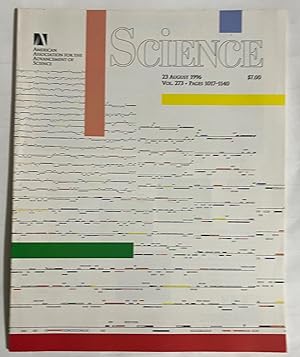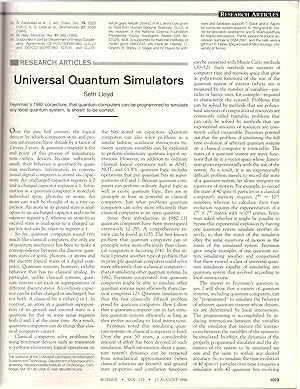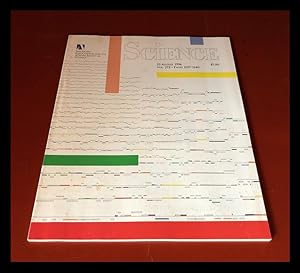Universal Quantum Simulators Science by Lloyd Seth (3 results)
FeedbackSearch filters
Product Type
- All Product Types
- Books (3)
- Magazines & Periodicals (No further results match this refinement)
- Comics (No further results match this refinement)
- Sheet Music (No further results match this refinement)
- Art, Prints & Posters (No further results match this refinement)
- Photographs (No further results match this refinement)
- Maps (No further results match this refinement)
- Manuscripts & Paper Collectibles (No further results match this refinement)
Condition Learn more
- New (No further results match this refinement)
- As New, Fine or Near Fine (1)
- Very Good or Good (1)
- Fair or Poor (No further results match this refinement)
- As Described (1)
Binding
- All Bindings
- Hardcover (No further results match this refinement)
- Softcover (2)
Collectible Attributes
- First Edition (2)
- Signed (No further results match this refinement)
- Dust Jacket (No further results match this refinement)
- Seller-Supplied Images (3)
- Not Print on Demand (3)
Language (1)
Price
- Any Price
- Under US$ 25 (No further results match this refinement)
- US$ 25 to US$ 50 (No further results match this refinement)
- Over US$ 50
Free Shipping
- Free Shipping to U.S.A. (No further results match this refinement)
Seller Location
Seller Rating
-
"Universal Quantum Simulators" in "Science".
Published by American Association for the Advancement of Science, 1996
Seller: JF Ptak Science Books, Hendersonville, NC, U.S.A.
Soft cover. Condition: Fine. Lloyd, Seth. "Universal Quantum Simulators" in "Science", American Association for the Advancement of Science, vol 273 no. 5 278, pp 1073-1078, 23 August 1996. Original wrappers. Fine copy of the full issue. [++] 3300+ citations for this paper by Lloyd in which he shows the Feynman quantum computer conjecture (Feynman, "Simulating Physics with Computers" in "International Journal of Theoretical Physics", 21, 467, 1982) to be correct by proving that a quantum system can be simulated in a quantum computer. The very short and sweet abstract from the Lloyd paper simply states: "Feynman's 1982 conjecture that quantum computers can be programmed to simulate any local quantum system, is shown to be correct." That's it. [++] "Since their introduction in 1980 quantum computers have been investigated extensively. A comprehensive review can be found in. The best known problem that quantum computers can in principle solve more efficiently than classical computers is factoring. In this article I present another type of problem that in principle quantum computers could solve more efficiently than a classical computer that of simulating other quantum systems. In 1982, Feynman conjectured that quantum computers might be able to simulate other quantum systems more efficiently than classical computers. Quantum simulation is thus the first classically difficult problem posed for quantum computers. Here I show that a quantum computer can in fact simulate quantum systems efficiently as long as they evolve according to local interactions." [++] *Also see: BENIOFF P, "The Computer as a Physical System a Microscopic Quantum-Mechanical Hamilton Model pf Computers as Represented by Turing-Machines" Journal of Statistical Physics, 22, 563, (1980); AND see: Lloyd, S., A Potentially Realizable†Quantum Computer, Science 261, 1569-1571, 1993 for an earlier (earliest?) discussion of the quantum computer.
-
"Universal Quantum Simulators" (Science 273 No. 5278 pp. 10731078, August 23, 1996)
Published by National Association for the Advancement of Science, Washington DC, 1996
Seller: Craig Olson Books, ABAA/ILAB, Belfast, ME, U.S.A.
First Edition
Wraps. Condition: Very Good. First Edition. In 1996, Seth Lloyd proved that a universal quantum simulator was possible by showing that a quantum computer can be programmed to simulate any local quantum system efficiently. 1017-1140 pp. 4to. Magazine with mailing label and light scuffing from shelf wear.
-
Universal Quantum Simulators in Science, Volume 273, Number 5278, 23 August 1996, pp. 1073-1078
Published by American Association for the Advancement of Science, New York, 1996
Seller: Atticus Rare Books, West Branch, IA, U.S.A.
First Edition
1st Edition. FIRST EDITION IN ORIGINAL WRAPS OF THE FIRST PROOF "THAT UNIVERSAL COMPUTERS CAN BE BUILT FROM QUANTUM MECHANICAL SYSTEMS" (Stolz, Quantum Computing, 129). In 1982 Feynman conjectured that quantum computers can be programmed to simulate any local quantum system. In this paper, Seth Lloyd proves that Feynman was correct. He "prove[s] that a universal quantum simulator is possible by showing that a quantum computer can be programmed to simulate any local quantum system efficiently" (History of Science: The Wenner Collection; Wikipedia). "Quantum computing studies theoretical computation systems (quantum computers) that make direct use of quantum-mechanical phenomena, such as superposition and entanglement, to perform operations on data" (Gershenfeld, "Quantum Computing with Molecules" in Scientific American, June 1988). "Quantum computers are different from binary digital electronic computers based on transistors. Whereas common digital computing requires that the data be encoded into binary digits (bits), each of which is always in one of two definite states (0 or 1), quantum computation uses quantum bits, which can be in superpositions of states" (Wikipedia). Seth Lloyd, a self-proclaimed ‚??quantum mechanic', is a professor of mechanical engineering and physics at MIT. His ‚??potentially realizable' quantum computer is described as "arrays of weakly coupled quantum systems. Computation is effected by a sequence of electromagnetic pulses that induce transitions between locally defined quantum states. in a crystal lattice" (Van Loocke, The Physical Nature of Consciousness, 41). In that 1993 paper (which we offer separately) Lloyd's computer architecture, every ‚??quit', or gate, does not need to be addressed individually. Lloyd's architecture necessitates "only a few control quits are needed, while the quantum information is stored in a chain of quits that consists of repeated units ABC of only three distinguishable physical qubits. Each group of three physical quits stores one logical quit. Logical operations can be broken down into operations that act on all A, B or C physical quits. It was shown that this architecture is universal, i.e., it can efficiently run all algorithms that are efficient on a network quantum computer" (Stolze, Quantum Computing, 143). In this 1996 paper, Lloyd goes further. Feynman had essentially asked whether implicit exponential explosion might be bypassed by "having one quantum system simulate another directly so that the states of the simulator obey the same equations of motion as the states of the simulated system. [In 1996, Lloyd shows] that a variety of quantum systems, including quantum computers, can be ‚??programmed' to simulate the behavior of arbitrary quantum systems whose dynamics are determined by local interactions. The programming is accomplished by inducing interactions between the variables of the simulator that imitate the interactions between the variables of the system to be simulated. In effect, the dynamics of the properly programmed simulator and the dynamics of the system to be simulated are one and the same to within any desired accuracy" (Lloyd, 1996, p. 1073). CONDITION & DETAILS: New York: American Association for the Advancement of Science. 8vo. Complete. Very light spotting on the front wrap, otherwise bright and clean inside and out. Very good + condition.




